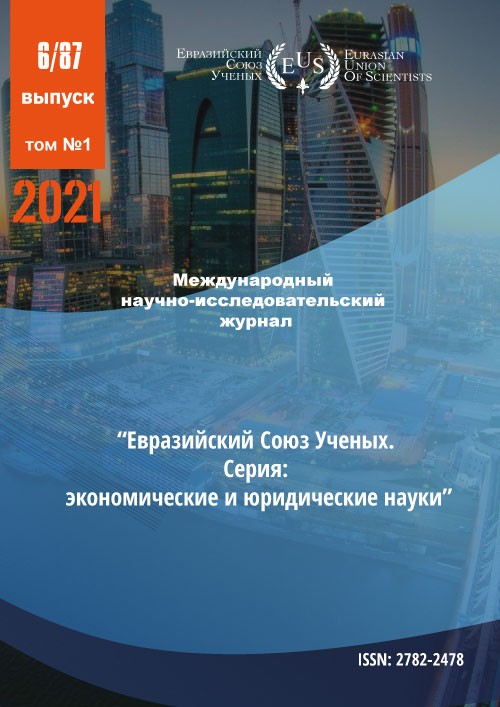CONCEPTUAL FRAMEWORK FOR EFFECTIVE MANAGEMENT METHODS IN INDUSTRIAL ENTERPRISES
Abstract
The paper shows that the concept of good governance, policy deployment and value analysis tool, and the functional analysis framework method are required to show how these methods add significant value to policy deployment. An enterprise would be more successful if all its activities supported its entire goal, and all policies supported each other and the overall goals of the enterprise, while it is necessary to display all the functions that the client needs, as well as the means and costs to achieve them. This makes it possible to analyze all functions and their relationship to the overall goals of the enterprise. There is a danger that policy management may eventually degenerate into the more traditional form of “wanted the best, it worked out as always”. politics has become a way of managing the goals of an enterprise.
References
Borodin, V.A. Promyshlennaya politika regiona v usloviyah intensifikacii strukturnyh sdvigov i vhozhdeniya ekonomiki Altajskogo kraya v globalizuyusheesya ekonomicheskoe prostranstvo / V.A. Borodin, I.A. Goloshapova // Nauka – Altajskomu krayu, 2008 god : sbornik nauchnyh statej po rezultatam NIR, vypolnennyh za schet sredstv kraevogo byudzheta. – 2008. – Vyp. 2. – 294 s.
Grachev, A.V. Finansovaya ustojchivost predpriyatiya: kriterii i metody ocenki v rynochnoj ekonomike : uchebnik / A.V. Grachev. – M. : Izd-vo «Delo i servis», 2014. – 400 s.
Mezhov, I. Innovacionno-orientirovannoe predpriyatie: predplanovyj analiz konkurentosposobnosti / I. Mezhov, P. Kazarinova // Problemy teorii i praktiki upravleniya. – 2018. – № 4. – S. 106.
Romanova, M.M. Primenenie novyh metodov upravleniya na predpriyatiyah / M.M. Romanova, V.A. Borodin // Ekonomicheskij analiz: teoriya i praktika. – 2017. – № 19. – S. 58.
Titova, O.V. Finansovaya i informacionnaya podderzhka promyshlennyh predpriyatij v ramkah innovacionnogo razvitiya / O.V. Titova // Finansovyj biznes. – 2021. – № 2 (212). – S. 114–116.
CC BY-ND
A work licensed in this way allows the following:
1. The freedom to use and perform the work: The licensee must be allowed to make any use, private or public, of the work.
2. The freedom to study the work and apply the information: The licensee must be allowed to examine the work and to use the knowledge gained from the work in any way. The license may not, for example, restrict "reverse engineering."
2. The freedom to redistribute copies: Copies may be sold, swapped or given away for free, in the same form as the original.







